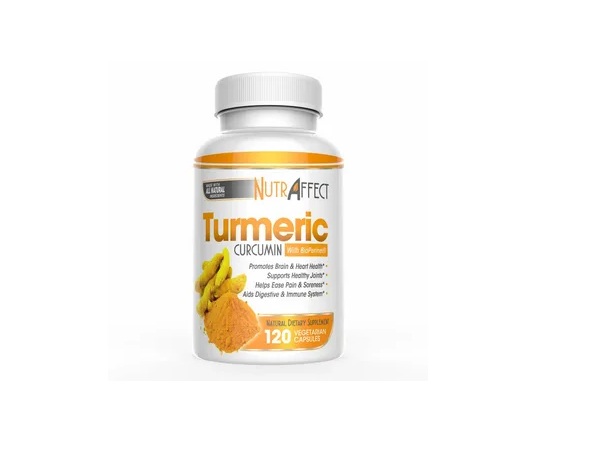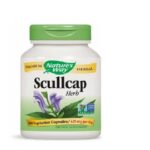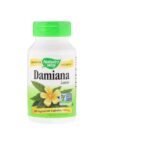
Benefits of Turmeric Supplements
Turmeric, a vibrant golden spice derived from the rhizomes of the Curcuma longa plant, has been revered for its culinary and medicinal properties for centuries. Originating in South Asia, turmeric has long been a staple in traditional Ayurvedic and Chinese medicine, prized for its potent anti-inflammatory, antioxidant, and healing properties. In recent years, turmeric supplements have surged in popularity, offering a convenient way to harness the numerous health benefits associated with this versatile spice. In this comprehensive guide, we delve into the diverse array of benefits offered by turmeric supplements, examining their nutritional profile, therapeutic effects, and practical applications in promoting overall well-being.
Understanding Turmeric: Nature’s Golden Healer
Turmeric owes its vibrant hue and medicinal potency to its active compound, curcumin. Curcumin is a polyphenolic compound with powerful antioxidant and anti-inflammatory properties, making it the primary bioactive component responsible for many of turmeric’s health benefits. However, turmeric contains other bioactive compounds as well, including turmerones and turmerin, which contribute to its therapeutic effects.
Nutritional Composition of Turmeric
While turmeric is not typically consumed in large quantities to provide significant nutritional value, it contains essential nutrients, vitamins, and minerals in trace amounts. Additionally, its bioactive compounds, particularly curcumin, are responsible for its medicinal properties. Turmeric is also rich in dietary fiber, iron, potassium, manganese, and vitamin B6, further contributing to its overall nutritional profile.
Health Benefits of Turmeric Supplements
Anti-Inflammatory Effects
Perhaps the most well-known benefit of turmeric supplements is their potent anti-inflammatory properties. Curcumin, the primary active compound in turmeric, inhibits inflammatory pathways in the body, reducing inflammation and alleviating symptoms associated with inflammatory conditions such as arthritis, inflammatory bowel disease (IBD), and chronic pain disorders.
Antioxidant Protection
Turmeric supplements serve as a potent source of antioxidants, helping neutralize free radicals and oxidative stress in the body. By scavenging harmful molecules and protecting cells from damage, turmeric supports cellular health and may reduce the risk of chronic diseases such as cancer, cardiovascular disease, and neurodegenerative disorders.
Joint Health
Due to its anti-inflammatory properties, turmeric supplements are often used to support joint health and alleviate symptoms of arthritis and joint pain. Curcumin helps reduce inflammation in the joints, improve mobility, and alleviate discomfort associated with conditions like osteoarthritis and rheumatoid arthritis.
Digestive Support
Turmeric supplements may aid in digestion and promote gastrointestinal health. Curcumin stimulates bile production, which aids in the digestion of fats and supports liver function. Additionally, turmeric’s anti-inflammatory effects may help soothe digestive discomfort and alleviate symptoms of conditions such as irritable bowel syndrome (IBS) and indigestion.
Heart Health
Emerging research suggests that turmeric supplements may benefit cardiovascular health by improving various risk factors associated with heart disease. Curcumin helps lower LDL cholesterol levels, reduce blood pressure, and prevent the formation of blood clots, thereby supporting overall heart health and reducing the risk of heart disease and stroke.
Brain Health
Turmeric supplements have been investigated for their potential to support cognitive function and protect against neurodegenerative diseases such as Alzheimer’s disease and Parkinson’s disease. Curcumin crosses the blood-brain barrier and exerts neuroprotective effects, reducing inflammation in the brain, promoting the production of brain-derived neurotrophic factor (BDNF), and enhancing cognitive function.
Immune Support
Turmeric supplements may bolster the immune system and enhance immune function. Curcumin’s antioxidant and anti-inflammatory properties help protect against infections, boost immune cell activity, and support the body’s natural defense mechanisms, thereby reducing the risk of illness and promoting overall immune health.
Skin Health
Turmeric supplements are sometimes used to promote skin health and alleviate various dermatological conditions. Curcumin’s anti-inflammatory and antioxidant properties help reduce inflammation, soothe irritated skin, and promote wound healing. Turmeric supplements may be beneficial for conditions such as acne, eczema, psoriasis, and dermatitis.
Practical Considerations and Usage
When selecting turmeric supplements, it’s essential to choose high-quality products from reputable brands that use standardized extracts with high concentrations of curcumin. Look for supplements that contain black pepper extract (piperine) or other ingredients that enhance curcumin absorption, as curcumin is poorly absorbed on its own.
Turmeric supplements are available in various forms, including capsules, tablets, powders, and liquid extracts. The appropriate dosage may vary depending on factors such as the individual’s age, health status, and specific health goals. It’s advisable to follow the manufacturer’s recommendations or consult with a healthcare professional for personalized guidance.
Turmeric supplements can be incorporated into a daily wellness routine to support overall health and well-being. They can be taken with meals or on an empty stomach, depending on personal preference. Turmeric supplements are generally well-tolerated, but some individuals may experience mild side effects such as gastrointestinal upset or allergic reactions.
Potential Side Effects and Precautions
While turmeric supplements are considered safe for most people when taken in appropriate doses, there are some precautions to consider. Individuals who are pregnant, breastfeeding, or taking prescription medications should consult with a healthcare professional before using turmeric supplements, as they may interact with certain medications or have contraindications.
Additionally, individuals with gallbladder disease or bile duct obstruction should exercise caution when using turmeric supplements, as curcumin may stimulate bile production and exacerbate symptoms. It’s essential to follow recommended dosage guidelines and avoid exceeding the recommended dose without medical supervision.
Conclusion
Turmeric supplements offer a natural and potent way to harness the numerous health benefits associated with this ancient spice. From reducing inflammation and supporting joint health to promoting heart health, cognitive function, and immune support, turmeric supplements have a wide range of therapeutic applications. By incorporating turmeric supplements into a balanced lifestyle and wellness regimen, individuals can optimize their health and well-being, supporting vitality and longevity. However, it’s essential to approach supplementation mindfully, considering individual needs, potential side effects, and consulting with a healthcare professional when necessary. With proper use and moderation, turmeric supplements can be a valuable ally in achieving and maintaining optimal health and vitality.
- Core Perfection: My Personal Review of the Vessel Core Series Vape Pens! - July 29, 2024
- Sippin’ in Style: My THC Beverage Adventure with Melo - May 16, 2024
- Benefits of Lecithin Supplements - March 30, 2024

